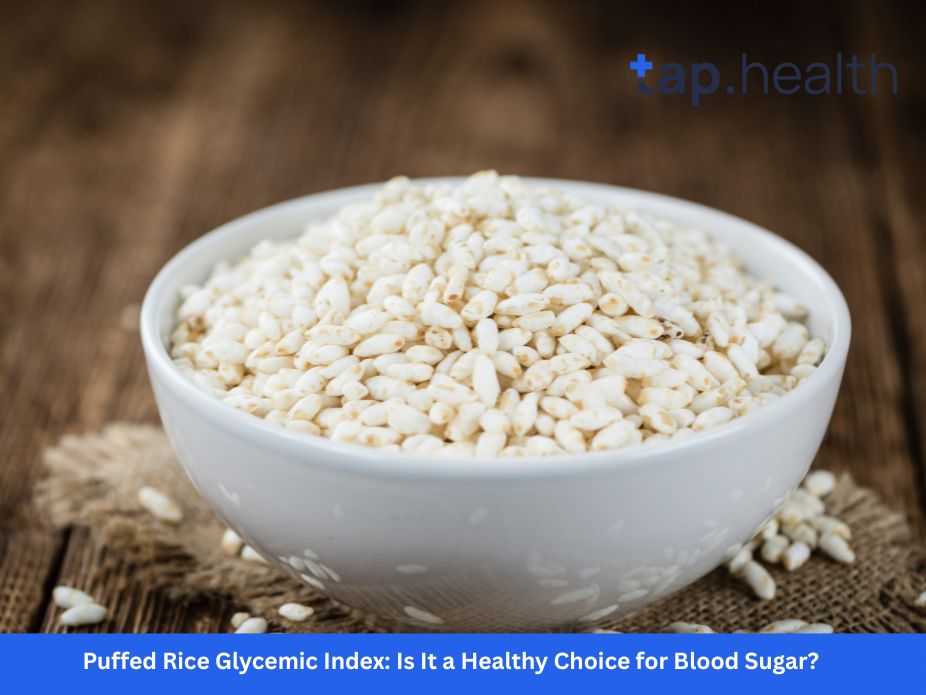Acid reflux, also known as gastroesophageal reflux disease (GERD), is a common condition that affects many people, but it can be particularly troublesome during pregnancy. Understanding the causes, symptoms, and treatment options can help expectant mothers manage this condition effectively. This guide will cover what acid reflux during pregnancy is, how common it is, when it is worse, symptoms and causes, relief strategies, prevention tips, when to seek medical advice, and frequently asked questions.
What is Acid Reflux During Pregnancy?
Acid reflux occurs when stomach acid backs up into the esophagus, causing a burning sensation in the chest known as heartburn. During pregnancy, hormonal changes and physical pressure from the growing fetus can increase the likelihood of acid reflux. The lower esophageal sphincter (LES), a muscle at the bottom of the esophagus that usually keeps stomach acid from rising, can relax more often due to increased levels of the hormone progesterone. This relaxation allows acid to escape into the esophagus, causing discomfort.
How Common is Acid Reflux During Pregnancy?
Acid reflux is very common during pregnancy, affecting up to 50% of pregnant women at some point during their pregnancy. The likelihood of experiencing acid reflux increases as pregnancy progresses, with the third trimester being the most common period for symptoms to appear. This increase is due to both hormonal changes and the growing fetus putting pressure on the stomach and other digestive organs.
When is Acid Reflux Worse in Pregnancy?
Acid reflux can be worse at certain times during pregnancy due to various factors:
1. Late Pregnancy
As the pregnancy progresses, the growing fetus can put more pressure on the stomach, increasing the likelihood of acid reflux. This is particularly common in the third trimester.
2. After Eating
Large meals or meals high in fat can trigger acid reflux symptoms. Eating close to bedtime can also worsen symptoms, as lying down can make it easier for stomach acid to flow back into the esophagus.
3. Nighttime
Many pregnant women find that their acid reflux is worse at night. This is because lying down can increase the risk of acid escaping from the stomach into the esophagus. Elevating the head while sleeping can help reduce nighttime symptoms.
Symptoms and Causes of Acid Reflux During Pregnancy
Symptoms
The symptoms of acid reflux during pregnancy are similar to those experienced by non-pregnant individuals, but they can be more severe or frequent due to the physiological changes associated with pregnancy. Common symptoms include:
- Heartburn: A burning sensation in the chest, usually after eating or at night.
- Regurgitation: A sour or bitter-tasting acid backing up into the throat or mouth.
- Difficulty Swallowing: Feeling like food is stuck in the throat.
- Coughing or Wheezing: Irritation of the throat and airways from stomach acid.
- Nausea or Vomiting: Feeling queasy or throwing up, particularly after meals.
Causes
Several factors contribute to the increased likelihood of acid reflux during pregnancy:
1. Hormonal Changes
Increased levels of progesterone relax the muscles of the LES, allowing stomach acid to escape more easily into the esophagus.
2. Physical Pressure
As the uterus expands, it puts pressure on the stomach and other digestive organs, which can force stomach acid back into the esophagus.
3. Slower Digestion
Pregnancy hormones can slow down the digestive process, leading to delayed stomach emptying and an increased risk of acid reflux.
4. Dietary Choices
Certain foods and drinks can trigger acid reflux symptoms, including spicy foods, citrus fruits, tomatoes, chocolate, caffeinated beverages, and fatty foods.
How Your Eating Habits Affect Acid Reflux
Besides steering clear of certain foods and drinks, pregnant women can tweak how they eat to lessen the chance of acid reflux. By simply changing how much they eat at a time and when they eat, expectant moms can cut down on the discomfort that comes with acid reflux. Here are some eating habits to consider:
- Smaller meals: Having smaller but more frequent meals helps keep the stomach from getting too full, which lowers the risk of acid reflux. These smaller portions also improve digestion and reduce stomach acid production.
- Meal timing: It’s wise not to eat just before going to sleep. Giving your body a few hours without food before bedtime lets your stomach empty out properly. Eating right before you lie down makes it easier for stomach acid to cause problems because it doesn’t have enough time to digest fully.
By paying attention to meal size and when they’re eaten, pregnant women can better handle symptoms related directly or indirectly associated with both discomforts due specifically towards either an increase in overall levels or instances where there might be excessive amounts present within one’s system regarding what is commonly referred as “acid reflux” thereby ensuring a healthier digestive process throughout their pregnancy period.
How Can I Relieve Acid Reflux During Pregnancy?
Managing acid reflux during pregnancy involves a combination of lifestyle changes and medical treatments. Here are some strategies to help relieve symptoms:
1. Eat Smaller, More Frequent Meals
Instead of three large meals, try eating smaller, more frequent meals throughout the day. This can help prevent the stomach from becoming too full and reduce the risk of acid reflux.
2. Avoid Trigger Foods
Identify and avoid foods and drinks that trigger your acid reflux symptoms. Common triggers include spicy foods, citrus fruits, tomatoes, chocolate, caffeinated beverages, and fatty foods.
3. Stay Upright After Eating
Avoid lying down immediately after eating. Instead, try to stay upright for at least two to three hours after meals to help prevent stomach acid from flowing back into the esophagus.
4. Elevate the Head of Your Bed
Raising the head of your bed by 6 to 8 inches can help prevent nighttime acid reflux. This can be done by placing blocks under the legs of the bed or using a wedge pillow to elevate your upper body.
5. Wear Loose-Fitting Clothing
Tight clothing can put pressure on the stomach and increase the risk of acid reflux. Opt for loose-fitting clothing, especially around the waist, to help prevent symptoms.
6. Chew Gum
Chewing gum can help increase saliva production, which can neutralize stomach acid and help prevent acid reflux.
7. Drink Water
Drinking water can help dilute stomach acid and promote healthy digestion. Try to drink water throughout the day, especially after meals, to help manage acid reflux symptoms.
8. Take Antacids
Over-the-counter antacids can help neutralize stomach acid and provide quick relief from heartburn. However, it is important to talk to your healthcare provider before taking any medication during pregnancy.
How Can I Prevent Acid Reflux During Pregnancy?
Preventing acid reflux during pregnancy involves making lifestyle changes and adopting healthy habits. Here are some tips to help prevent symptoms:
1. Maintain a Healthy Weight
Being overweight can increase the risk of acid reflux. Maintaining a healthy weight through diet and exercise can help reduce symptoms and improve overall health.
2. Avoid Eating Late at Night
Try to finish your last meal at least three hours before going to bed. This gives your body enough time to digest the food and reduce the likelihood of acid reflux while you sleep.
3. Eat Slowly
Eating slowly and chewing your food thoroughly can help with digestion and reduce the risk of acid reflux. Take your time when eating and make sure to chew each bite thoroughly before swallowing.
4. Avoid Smoking and Alcohol
Smoking and alcohol can relax the LES and increase the risk of acid reflux. Avoiding these substances can help prevent symptoms and improve overall health.
5. Practice Relaxation Techniques
Stress can increase the risk of acid reflux. Practice relaxation techniques such as deep breathing, meditation, or yoga to help manage stress and reduce symptoms.
6. Wear Loose-Fitting Clothing
Tight clothing can put pressure on the stomach and increase the risk of acid reflux. Opt for loose-fitting clothing, especially around the waist, to help prevent symptoms.
7. Drink Plenty of Water
Staying hydrated can help dilute stomach acid and promote healthy digestion. Try to drink water throughout the day to help prevent acid reflux symptoms.
Safe Home Remedies for Acid Reflux During Pregnancy
Pregnant women don’t just have to rely on changing their lifestyle; they can also use some safe home remedies to help with the discomfort of acid reflux. These natural options are easy on the body and really helpful in reducing those unpleasant feelings. Here’s what you might consider:
- Herbal teas: Drinking teas like chamomile, ginger, or peppermint is great for calming your stomach and cutting down on acid reflux.
- Ginger: Whether it’s through tea or candies, ginger is fantastic for easing heartburn symptoms and keeping acid reflux at bay.
- Other natural solutions: There are more ways to find relief, including slippery elm and aloe vera juice which both work well against heartburn during pregnancy.
By adding these gentle remedies into their daily lives, pregnant women can better handle acid reflux issues and make their pregnancy experience much smoother.
Herbal Teas and Their Benefits
During pregnancy, acid reflux can be really uncomfortable. But sipping on some herbal teas might just do the trick to ease that discomfort. These teas have special qualities that help lessen stomach acid and make you feel better.
- With Chamomile tea, its anti-inflammatory traits work wonders in cutting down stomach acid and calming your tummy.
- Ginger tea steps up by balancing out stomach acid and improving digestion thanks to more digestive enzymes.
- Peppermint tea is great too because it relaxes your gut’s muscles which helps prevent acid from coming back up.
However, it’s key for pregnant women to remember not to go overboard with these teas. Drinking them a lot could actually lead to an increase in stomach acidity. So before making these teas a regular part of your day, having a chat with a healthcare provider would be wise.
The Role of Ginger and Other Natural Remedies
Ginger has been a go-to for easing stomach troubles like heartburn and acid reflux for ages. It helps calm the discomfort in your digestive system and can cut down on that burning feeling you get from acid reflux. You can enjoy ginger in different ways, whether it’s sipping some ginger tea or munching on ginger candies.
Along with ginger, there are other natural helpers like slippery elm and aloe vera juice that might ease the burn of acid reflux, especially when you’re pregnant. These remedies help by calming your esophagus and keeping stomach acid in check. However, to really tackle heartburn symptoms effectively, it’s wise to pair these natural solutions with changes in how you eat—like dodging foods that set off your reflux and opting for smaller meals spread throughout the day.
Importance of Posture and Sleep Positions
For pregnant women, how you sit and sleep can really make a difference in dealing with acid reflux. By tweaking the way you position yourself, you can help your digestion work better and cut down on those uncomfortable acid reflux moments. Here’s what to keep in mind:
- Head of your bed: Lifting up where you rest your head at night, either by piling up some extra pillows or raising the bed itself, keeps stomach acid from going back up into your throat while you’re asleep.
- Pregnancy hormones: The hormones that come with pregnancy tend to relax the lower esophageal sphincter (LES), which normally stops stomach acid from coming back up. Standing or sitting straight helps fight off these hormone effects.
- Sleep positions: When it comes to catching Zs, lying on your left side is best. This position helps stop stomach acid from moving back into the esophagus.
By paying attention to how they sit and sleep, expectant mothers have a good shot at easing their symptoms of heartburn during pregnancy for more peaceful nights.
When to Seek Medical Advice
While lifestyle changes and dietary modifications can help manage acid reflux during pregnancy, it is important to know when to seek medical advice. Here are some signs that you should consult a healthcare professional:
1. Severe or Persistent Symptoms
If you experience severe or persistent symptoms of acid reflux, it is important to seek medical advice. Your healthcare provider can recommend treatments or medications that are safe to use during pregnancy.
2. Difficulty Swallowing
If you have difficulty swallowing or feel like food is getting stuck in your throat, it is important to seek medical advice. This can be a sign of esophageal damage or other complications of acid reflux.
3. Chest Pain
Chest pain can be a sign of acid reflux, but it can also be a sign of a more serious condition such as a heart attack. If you experience chest pain, it is important to seek medical advice immediately.
4. Weight Loss
Unexplained weight loss can be a sign of a serious condition and should be evaluated by a healthcare professional. If you experience unexplained weight loss along with acid reflux symptoms, it is important to seek medical advice.
5. Vomiting Blood or Passing Black Stools
Vomiting blood or passing black stools can be a sign of gastrointestinal bleeding and should be evaluated by a healthcare professional immediately.
FAQ on Acid Reflux During Pregnancy
1. Is acid reflux common during pregnancy?
Yes, acid reflux is very common during pregnancy, affecting up to 50% of pregnant women at some point during their pregnancy.
2. What causes acid reflux during pregnancy?
Acid reflux during pregnancy is caused by hormonal changes that relax the LES and physical pressure from the growing fetus on the stomach and other digestive organs.
3. What are the symptoms of acid reflux during pregnancy?
Common symptoms of acid reflux during pregnancy include heartburn, regurgitation, difficulty swallowing, coughing or wheezing, and nausea or vomiting.
4. How can I relieve acid reflux during pregnancy?
Relief strategies for acid reflux during pregnancy include eating smaller, more frequent meals, avoiding trigger foods, staying upright after eating, elevating the head of your bed, wearing loose-fitting clothing, chewing gum, drinking water, and taking antacids.
5. How can I prevent acid reflux during pregnancy?
Prevention tips for acid reflux during pregnancy include maintaining a healthy weight, avoiding eating late at night, eating slowly, avoiding smoking and alcohol, practicing relaxation techniques, wearing loose-fitting clothing, and drinking plenty of water.
6. When should I seek medical advice for acid reflux during pregnancy?
You should seek medical advice if you experience severe or persistent symptoms, difficulty swallowing, chest pain, unexplained weight loss, or vomiting blood or passing black stools.
7. Are there any safe medications for acid reflux during pregnancy?
There are some medications that are considered safe to use during pregnancy for acid reflux, such as certain antacids and H2 blockers. However, it is important to consult your healthcare provider before taking any medication during pregnancy.
8. Can acid reflux harm my baby?
Acid reflux itself is unlikely to harm your baby, but severe or untreated symptoms can affect your overall health and well-being. It is important to manage acid reflux effectively to ensure a healthy pregnancy.
9. Can lifestyle changes alone manage acid reflux during pregnancy?
For many women, lifestyle changes such as dietary modifications and avoiding triggers can effectively manage acid reflux during pregnancy. However, some women may require medication to control symptoms.
10. Will acid reflux go away after pregnancy?
In most cases, acid reflux symptoms improve or go away after pregnancy once hormonal levels return to normal and the pressure on the stomach decreases. However, some women may continue to experience symptoms and may require ongoing treatment.
Managing acid reflux during pregnancy involves understanding the causes and symptoms, making lifestyle changes, and knowing when to seek medical advice. By following these guidelines, expectant mothers can help reduce symptoms and ensure a healthy and comfortable pregnancy.



